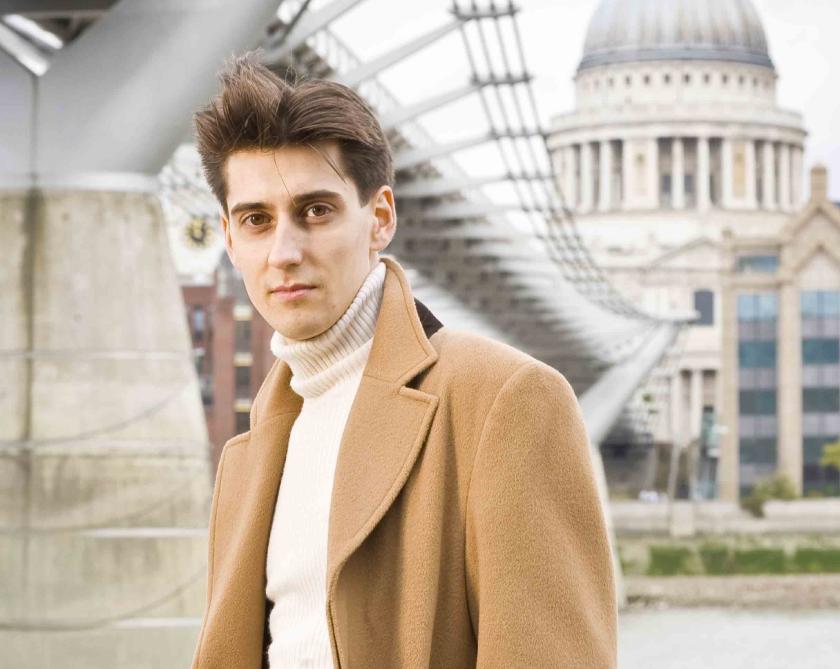Mahler once wrote that his symphonies were edifices built from the same stones, gathered in childhood. In each of the four recitals I’ve heard from Yevgeny Sudbin, he’s moved several of his repertoire cornerstones around to different effect in the piano-programme equivalents of a very large symphony orchestra playing a Mahler symphony: massive sonorities, total structural grasp, huge intelligence.
Take the placing of Saint-Saëns’s Danse macabre as filtered through the virtuosic imaginations of Liszt, Horowitz and Sudbin himself. It looked last night as if it was going to be an official encore, and as such I’d heard it – and found it absurd – in his Westminster Cathedral Hall recital of 2013. Here its midnight bell softly struck following the brief silence following the terrors, colossal repeated-note invocations and cosmic trills of Scriabin’s truly Satanic Ninth Sonata, the so-called “Black Mass”.
Saint-Saëns’s tuneful showpiece in itself would have seemed tamer, more joky, for all its splendid melodic waltzing. But with extra cascades amplifying both the use of the devilish tritone Saint-Saëns shares with Scriabin and the atonal implicit in the late developments of Scriabin’s extraordinary sonata-odyssey, it proved equally terrifying here. Sudbin has the most impactful bass sonority of any living pianist, at least that I’ve heard, and he’s now integrated his use of the sustaining pedal into an infallibly clear sound-picture, however headlong the impetus, rather than using it like many pianists to disguise an inability to play all the notes.
This is a pianist who will keep surprising us each and every timeHow I hoped after this shattering apotheosis that Sudbin wouldn’t play anything as show-offy in his encores as his fantasia on Chopin’s “Minute” Waltz. He didn’t: in fact, after a rather more tonality-secure intensity in Scriabin’s most famous piece, the early C sharp minor Etude, we got the only consistent emotional rooting of the evening in Chopin’s Third Ballade. Sudbin’s Chopin recital disc is one of the most searching, even profound, I know, and this was the right way to end an extraordinary programme.
It was even slightly discombobulating for the audience not to be able to sit back and enjoy pianistic sentiment and beauty for beauty’s sake at any point in the programme. The first half was classic-romantic upheaval viewed with superb objectivity, the two-part Bachian austerity which launches Haydn’s B minor Sonata, Hob XVI/32 riveting attention immediately. Just as he always shifts some of the emphases in works which are regular components of his repertoire each time he plays them, Sudbin never plays identical repeats, and the joins between sonata sections are always imaginatively phrased – none more so than the ferocious recap of Haydn’s finale swinging back to its repeat, but ending quietly second time around.
Sudbin made Beethoven’s six Op. 126 Bagatelles as essential an unbroken sequence as Schubert’s Impromptus ought to be, and with his split-second adjustment of tone from bass-rich and resonant to ethereal and remote, the contrasts could only seem the more unsettling. The stuck-in-the-groove sequences of repeating lyricism were stranger than ever in Sudbin’s motoric evenness – certainly something more than doodles, something less than ordinary human emotions. I suspect he could have gone straight on to the flights of Scriabin’s Promethean Fifth Sonata, but that, too, shocked us into attention at the very beginning of the second half. Sudbin’s praise in interview for “pianists who go beyond” applies very much to himself: his interpretation of this elusive masterpiece had gained in clarity but intensified, if anything, in its delirious drive. This is a pianist who will keep surprising us each and every time, one to follow for life.














Add comment